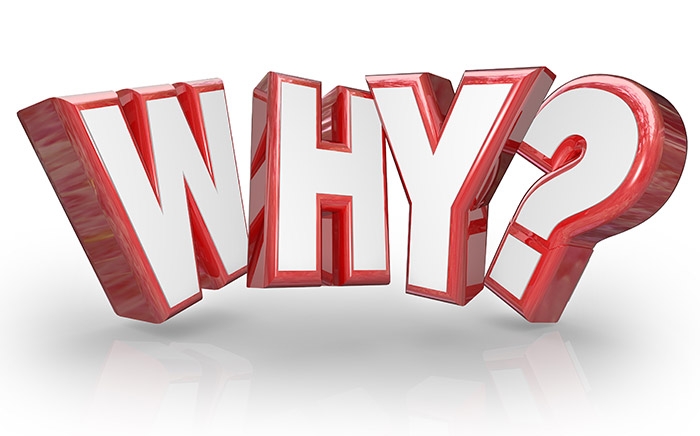Navigating CBD Legality: Rules and Realities for Michigan, Spain, and Hawaii
Understanding CBD Legality: A State and International Perspective
CBD, or cannabidiol, is a non-psychoactive compound derived from cannabis plants. As CBD’s popularity grows, so do questions about its legal status across different regions. This article provides a comprehensive review of the latest CBD laws in Michigan, Spain, and Hawaii. We’ll outline how you can access products, what restrictions to be aware of, and practical steps for ensuring compliance in each jurisdiction.
CBD in Michigan: A Progressive Legal Landscape
Michigan stands out as one of the most cannabis-friendly states in the U.S., having established a clear legal framework for both hemp-derived and marijuana-derived CBD products. Since the passage of the 2018 Farm Bill and Michigan’s own Proposal 1, CBD is legal to grow, manufacture, purchase, possess, and use in Michigan, provided it contains no more than 0.3% THC [1] . There are no state-imposed age restrictions for the purchase of hemp-derived CBD, though individual retailers may require buyers to be 18 or 21 years old [2] .
Michigan’s regulatory evolution began with the Compassionate Care Initiative in 2008, legalizing medical cannabis. This was followed by two pivotal 2014 laws, PA 547 and PA 548, which removed CBD from the state’s controlled substances list and authorized industrial hemp research. The Michigan Regulation and Taxation of Marihuana Act (MRTMA) in 2018 further legalized adult-use cannabis, paving the way for the state’s robust CBD market [3] .

Source: cbdoileco.com
However, edible hemp products are currently banned in Michigan due to a unique interpretation of federal law. As a result, you won’t find CBD gummies or other ingestible hemp products on Michigan shelves [2] . Only licensed marijuana-derived products with CBD are permitted for edibles, and these must be produced by licensed processors using regulated sources [5] .
Access and Compliance: To purchase CBD in Michigan:
- Visit a licensed retail dispensary or specialty store. Many health food and wellness stores also carry legal CBD products.
- Verify that products are labeled with THC content not exceeding 0.3% unless purchased from a licensed cannabis retailer.
- For marijuana-derived CBD products (including edibles), you must be 21+ and purchase from a state-licensed dispensary.
- For questions about legal compliance, consult the Michigan Marijuana Regulatory Agency or the Michigan Department of Agriculture & Rural Development. Contact information is available via their official state websites.
Be aware that enforcement against unlicensed growers and processors is active, especially regarding hemp-derived cannabinoids like THCa, which is considered marijuana under Michigan law if not produced within the regulated system [4] .
CBD in Spain: Complex Regulations and Practical Realities
Spain’s legal framework for CBD is more restrictive and complex than Michigan’s. While the cultivation of industrial hemp is legal under European Union regulations, the commercialization and sale of CBD as a food, supplement, or medicinal product face significant barriers. Spanish authorities currently only permit CBD products for external use, such as cosmetics and topical balms.
CBD products marketed as dietary supplements or foods are not legally allowed for sale in Spain. Only topical and cosmetic CBD items can be sold, and these must comply with stringent European and Spanish health and safety standards. Medical use of cannabis-derived products is generally limited to Sativex (a prescription-only medicine containing CBD and THC) and is highly regulated.
Access and Compliance: To access CBD in Spain:
- Only purchase CBD products clearly labeled for topical or cosmetic use from established health stores or pharmacies.
- If seeking CBD for medical reasons, consult a licensed physician. Only approved medicines like Sativex may be prescribed, and only for specific conditions.
- Do not attempt to import or purchase ingestible CBD (oils, edibles, capsules) online for personal use unless you have confirmed its legality with Spanish customs and health authorities.
- For up-to-date information, consult the Spanish Agency for Medicines and Health Products (AEMPS) or the European Commission’s official portals.
Note: The legal landscape in Spain is subject to change. Enforcement of personal possession laws is inconsistent, but significant risks remain for commercial sales and imports of ingestible CBD. Always confirm product status before purchase.
CBD in Hawaii: Evolving Laws and Local Nuances
Hawaii’s approach to CBD is shaped by both federal and state law, resulting in a somewhat cautious regulatory environment. While the 2018 Farm Bill federally legalized hemp-derived CBD (with THC content below 0.3%), the Hawaii Department of Health has been slow to embrace the sale of CBD-infused products, particularly ingestibles. As of the most recent updates, Hawaii prohibits the manufacture, distribution, or sale of food, beverages, or dietary supplements containing CBD, in line with FDA guidance.
CBD products intended for topical use (such as lotions and balms) are permitted, provided they are derived from hemp and contain less than 0.3% THC. There are no age restrictions for purchasing topical CBD, but ingestible products remain unavailable in local stores due to state regulations. Medical marijuana is available via prescription for qualifying patients, which may include CBD-rich preparations.
Access and Compliance: To legally obtain CBD in Hawaii:
- For topical use, purchase from reputable health and wellness retailers or pharmacies. Ensure products are labeled as hemp-derived and meet THC limits.
- For ingestible or edible CBD, Hawaii residents must wait for further regulatory updates or seek access through the state’s medical cannabis program.
- If you have a qualifying medical condition, speak with a licensed physician about obtaining a medical marijuana card, which allows access to regulated dispensaries and CBD-rich cannabis products.
- Stay informed by checking updates from the Hawaii Department of Health or the FDA’s official website concerning CBD regulations.
Key Considerations for Consumers and Businesses
Navigating CBD laws requires attention to both state and country-specific regulations. When accessing or selling CBD products:
- Always confirm that the product’s THC content and intended use comply with local laws.
- Check for proper product labeling, third-party lab testing, and retailer licensing.
- Be wary of online purchases, especially from international sources, as customs and import laws may result in product seizure or legal penalty.
- If in doubt, contact the appropriate regulatory agency for up-to-date guidance before making a purchase or launching a business.
For further assistance, search for the following official agency resources:
- Michigan: Marijuana Regulatory Agency (MRA), Michigan Department of Agriculture & Rural Development
- Spain: Spanish Agency for Medicines and Health Products (AEMPS)
- Hawaii: Hawaii Department of Health, Medical Cannabis Registry Program
Summary and Next Steps
CBD laws vary dramatically between Michigan, Spain, and Hawaii. In Michigan, a broad range of CBD products is available under a comprehensive regulatory framework. In Spain, only topical CBD is legal for sale, and all ingestible products are technically prohibited. Hawaii allows only topical CBD products, with ingestibles restricted to medical cannabis patients. If you are considering purchasing or selling CBD in any of these regions, always:

Source: babilegalgroup.com
- Check the latest laws from official government agencies.
- Ensure products are purchased from licensed or reputable sources.
- Consult local professionals or legal experts if you are uncertain about compliance.
The legal landscape for CBD is dynamic and continues to evolve. Staying informed and cautious is the best path to safe and legal CBD access.
References
- [1] Zebra CBD (2024). Is CBD Legal in Michigan? CBD Laws 2024.
- [2] Cobo CBD (2025). Is CBD Legal in Michigan? 2025 Michigan CBD Laws.
- [3] IndicaOnline (2025). Michigan Cannabis Laws 2025.
- [4] Cannabis Law Blog (2025). Update Concerning Hemp-Derived Cannabinoids in Michigan, Part 1.
- [5] Michigan.gov LARA (2019). Michigan Offers Guidance on CBD and Industrial Hemp.



